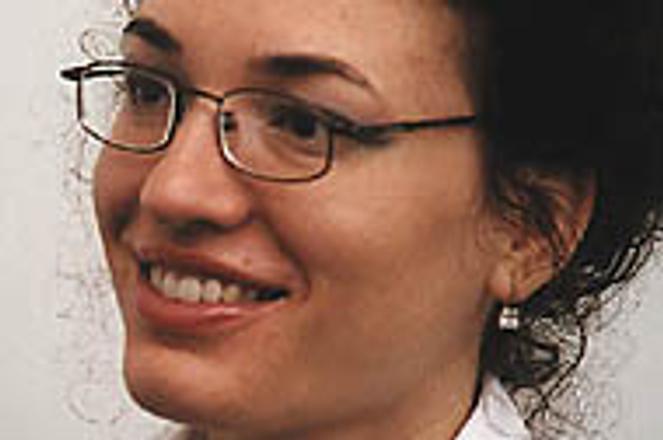The Caledonian School's Kudláčová thinks that complicated work permit procedures still discourage foreigners from working in Slovakia.photo: Ján Svrček
Katarína Kudláčová is managing director at The Caledonian School, a language school founded in 1999, and which currently employs 40 teachers, 30 of whom are foreigners. The Slovak Spectator spoke to Kudláčová July 2 about problems related to employing foreign nationals in Slovakia.
The Slovak Spectator (TSS): Your school has recently advertised for a new job position - coordinator of the foreign teachers' office. Why did you feel that this position was necessary?
Katarína Kudláčová (KK): Until recently we employed about six teachers, but after expanding we now have over 40, the majority of whom are foreigners. These people must be secured with official papers allowing them to work. This involves a lot of administrative work, such as organising visas, obtaining official work permit papers and so on.
They must also have someone to help them arrange housing here, and give them some basic orientation in the city. So far this work has been done by a colleague of mine who also had to take care of the firm's accounting. Now we need a person who can do this job exclusively.
TSS: How difficult would it be for a foreigner if they wanted to organise work permit papers by themselves?
KK: The process is very complicated. The problem is that our teachers come not only directly from their home countries, but that many of them already work in a country other than their own. According to Slovak legislation, they have to go back to their home countries and file a request for a Slovak work permit and a residency permit through the Slovak embassy in their home country. This is not always possible or feasible for them, as returning home can be expensive and time-consuming.
TSS: Many foreigners are discouraged from working here once they find out how much effort and time it takes to organise the basics in the first place. Do you think it would help if the state changed laws to make life easier for foreigners interested in working in Slovakia?
KK: It's especially felt in a business like ours. Language schools would definitely welcome a change in legislation in the sense that conditions for awarding work permits would be differentiated for certain groups of professions - teachers, for example.
TSS: You mentioned the process was complicated. Is there anything particularly complicated?
KK: Legislation in itself remains the biggest problem, but the level of difficulty involved in the process of organising work permits and the difficulties we meet depends also on the home country of the person who comes to Slovakia. The process is easiest when people come from Great Britain, for example, while it's most complicated when they come from Australia.
TSS: You work in an international firm. What are the problems and benefits of hiring for such a company? Is it difficult to find quality, experienced teachers?
KK: We look for teachers through recruiting firms or through contacts in Great Britain and Canada. All teachers who come here must go through several interviews with experienced teachers.
Our teachers come from Great Britain, the US, Canada, Malta, New Zealand and Australia, which makes the environment very multicultural and interesting. Their attitudes are quite different from those of Slovaks.
TSS: What do you mean?
KK: It's difficult to say exactly. In some areas I would say our [Slovak] people are more practical. The foreigners, on the other hand, are often shocked by the bureaucracy in Slovakia, by the fact that things here can't be solved as quickly as they are used to in their home countries. I also like foreigners' openness and initiative.
TSS: In the beginning of the 1990s there was a huge and very sudden demand among Slovaks to learn foreign languages. Language schools often recruited people who had no previous teaching experience, just because everybody wanted to be taught by a native speaker. This often resulted in students being unhappy with lessons. What is the situation today? Do students require more quality of their language teachers than just being a native speaker?
KK: As I already mentioned, all our teachers go through interviews with experienced teachers, and one of our requirements is that they have passed an exam in basic teaching skills. It's our principle to avoid hiring young people who come to see the region and suddenly find out that they have to make a living somehow. These 'backpackers' then say to themselves, 'Well, I can teach English because it's my mother language', but they lack pedagogical skills and experience. We don't employ such people.
TSS: Slovak language teachers sometimes feel undervalued and maybe also jealous of foreign teachers because foreigners seem to be getting more credit with both employers and students. Have you experienced this at your school?
KK: I haven't met such [jealous] Slovak teachers in our school. I don't think our [English] native speaker teachers have any advantages, and the atmosphere among our teachers is very friendly. Foreign teachers teach at levels different from Slovak teachers. Slovaks primarily teach beginners and pre-intermediate students, while native speakers teach intermediate and advanced levels.


